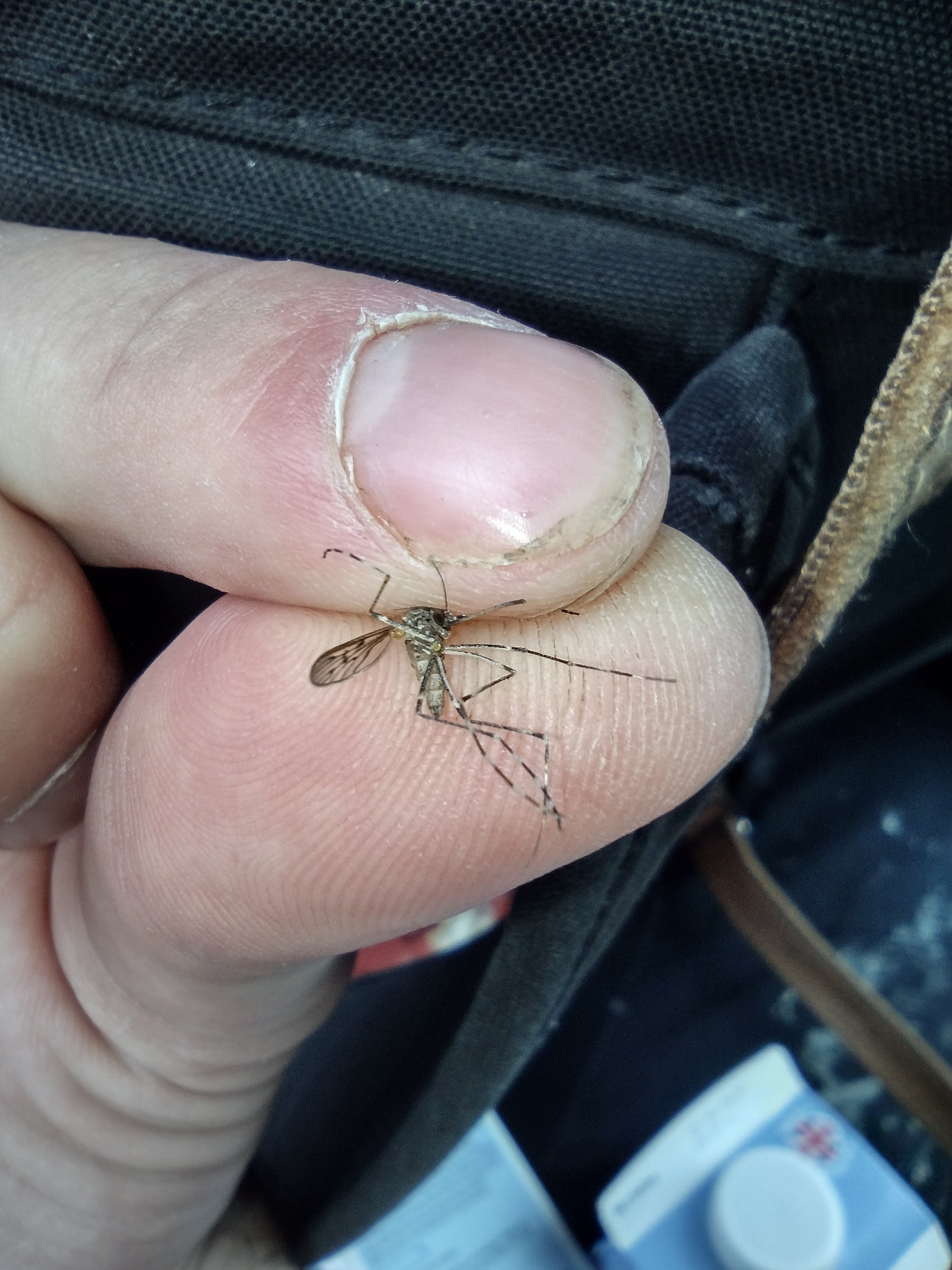Not just mosquitos and not just in the long term either; with the colder weather not being as harsh a lot of other critters are either making a comeback, hanging around for longer or not dying out in the colder temperatures - think Blandford flies, horseflies, tick bites…
Was in a Tesco’s about a month back and saw this bugger flying around my mum’s partner whilst queueing for the self checkout, with about 4/5 more flying around, I plucked it out of the air and got a photo of it
Couldn’t make a positive ID on it, though I’m unsure if its a local one - I’ve always heard to be wary of stripped legs

There seems be a lot more insects around this autumn and winter this year. I had an insect bite about a week ago, never usually get that in December.
That’s probably a midge rather than a mosquito
This is the best summary I could come up with:
Parts of the UK could become home to mosquitoes capable of spreading dengue fever, chikungunya and zika virus by the 2040s and 2050s, health officials warn.
Prof Nigel Arnell, professor of climate change at the University of Reading, says: “Whilst we clearly hope temperatures won’t get that far, it is prudent to prepare for the worst case when planning health resources, if the consequences of us underestimating the risk are so significant.”
While the mosquito only carries harmful viruses after biting infected people, London could see regular cases of dengue fever by 2060, the report says.
England would be the first country in the UK to be affected, with Wales, Northern Ireland and parts of the Scottish Lowlands also becoming suitable habitats later in the century.
This would mean making sure buckets are not collecting stagnant water in gardens, paddling pools being covered and any potential rain-collecting vessels being upturned, he added.
Slower and reduced warming is likely to delay these risks by decades or beyond this century - but once these mosquitoes have arrived, their establishment is largely irreversible, the report says.
The original article contains 563 words, the summary contains 183 words. Saved 67%. I’m a bot and I’m open source!



